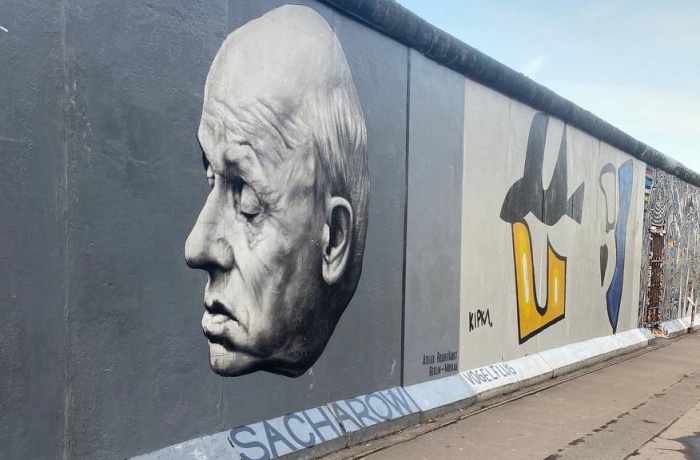
Together with the Ukraine War Archive team, we work every day with various materials: stories about life in bomb shelters, missile attacks, museum looting, etc. Our task is to collect and preserve the full picture of experiencing this war, as well as facts of war crimes.
This war is the most documented war in history. In our Department of Analytics and Tagging, we organise terabytes of documented materials in a way that allows us to quickly find what we need later. For instance, videos about the liberation of Kherson or protests of civilians in Berdyansk; about the bombing of the mall in Kremenchuk or about the horrors committed by the russians in Bucha. Still, to sort and archive the materials correctly and to verify them if needed, it is important for us to study international experience and the mechanisms of bringing war criminals to responsibility.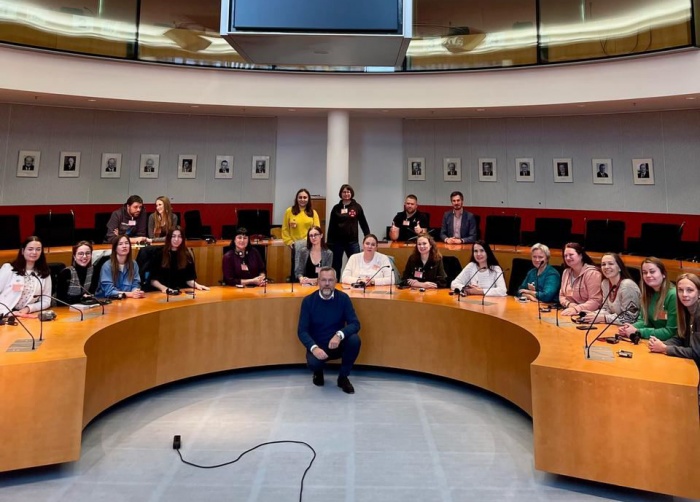
So the exchange programme Documenting War Crimes and Preserving Cultural Heritage became a great opportunity to explore the developments of our colleagues. The programme was organised by the International Centre for Policy Studies in partnership with Cultural Vistas (Germany) and with the support of the German Federal Foreign Office. The initiative involved 20 Ukrainian experts working to document and preserve cultural heritage. We spent a week together in Berlin, where we participated in a cultural and educational programme.
The German capital, as well as other European cities which I’ve had a chance to visit during the full-scale invasion, feels dissonant in its peaceful life. Our air raid warning apps, which we did not turn off so we could monitor the situation in Ukraine, pierced the deep silence in museums, passionate conversations during the educational events, or pleasant lunches at restaurants with the sounds of sirens.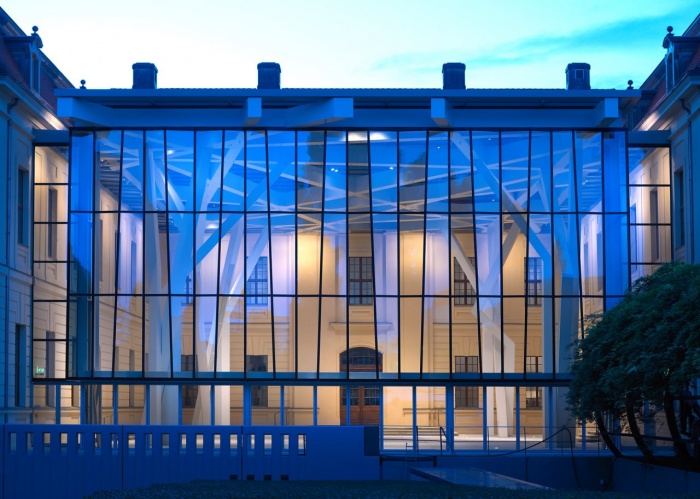
We visited the biggest Jewish museum in Europe (I would need days to really dive deep into the history of Jews in Germany), we saw the visual dialogue between Mediaeval artworks and the works of contemporary Ukrainian artists at the Bode Museum, we visited the memorial to the victims of the Holocaust (where we reminded the tour guide that it was not Russia that defeated the Nazis, but that almost a third of the Soviet army consisted of Ukrainians).
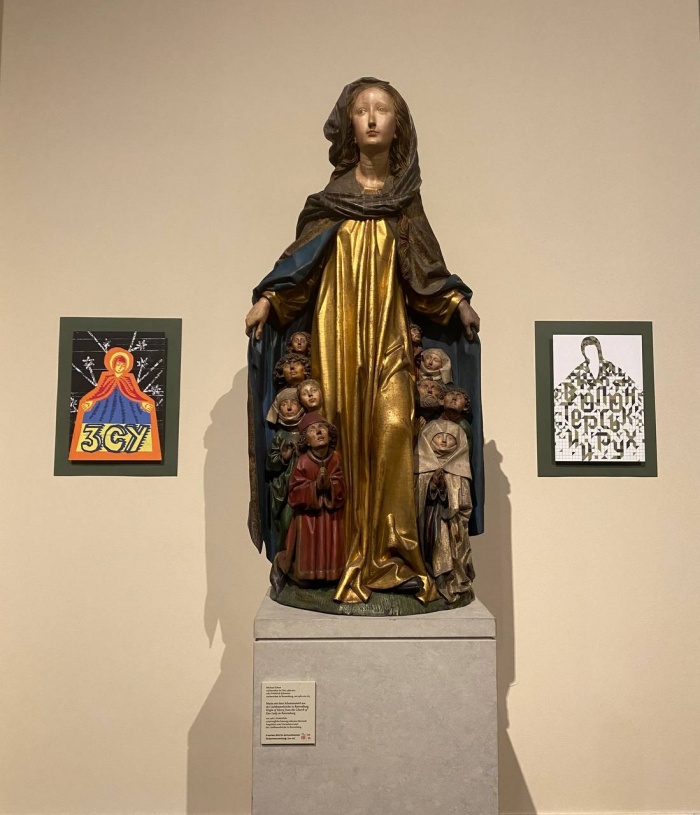
The programme’s educational part was equally intense. We met with Ukrainian and German cultural researchers, scientists, human rights advocates, lawyers, politicians. I was the most interested in how Germany, given its historic experience, can help us bring Russian war criminals to justice. We met with experts from the European Center for Constitutional and Human Rights (ECCHR) and reviewed a case filed by their lawyers together with the Ukrainian Legal Consulting Group at the Office of the Federal Prosecutor of Germany. The case is about a rape of a Ukrainian woman by russian military, and the suspects include soldiers and high-ranking military officers of russia. It is a telling case, because Ukrainian law has gaps, and this German-Ukrainian cooperation should help us pass specific sentences for specific people.
Tragic events in Ukraine, particularly the air strike on the Drama Theatre in Mariupol, are being investigated by the research group Forensic Architecture. The agency is based in London but has offices across the world. Their methodology is investigating crimes through visualisation and architecture. Unusual, right? Using virtual reconstruction of the Drama Theatre before the air strike and carefully collected testimonies by the civilian survivors, Forensic Architecture investigators have proven another of Russia’s horrible war crimes against Ukraine. I hope that these materials will help the justice process, since the agency already has cases when the evidence they collected were decisive in international courts.
Then we were introduced to Mnemonic, an international platform created by the developers of the Syrian Archive. Since 2022, Mnemonic has also been collecting digital materials from the full-scale war in Ukraine and storing them according to the highest standard.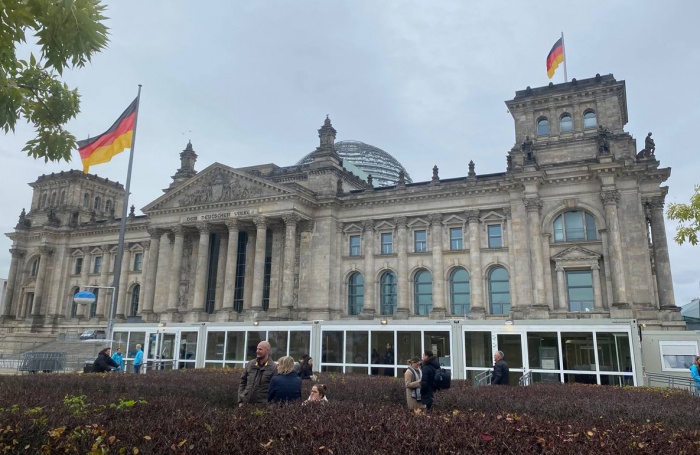
On the last day of the programme, we were faced with a responsible mission. We met with Michael Roth, a German politician and former Minister of State for Europe at the German Federal Foreign Office. We thanked Mr. Michael for his support for Ukraine, asked for more weapons and Leopards, and told him about the importance of Germany’s help in de-mining our country.
The week passed in the blink of an eye. And conversations with Ukrainian colleagues, their stories and their perseverance in the fight against russian aggression inspired me to persist and continue working. I returned to rainy Kyiv, but my Telegram chat from Berlin was still abuzz: we were exchanging photos and impressions from the trip. Some of my colleagues and I have become friends, we have planned joint projects, and I hope to establish strong partnerships. Abroad, I felt that people are not forgetting about Ukraine, and the civilised world understands our problems associated with the war. But if we want people to continue supporting us in our struggle, we need to remind them of this horrible war launched by russia at every opportunity.
Photo: Iryna Pavliukovska